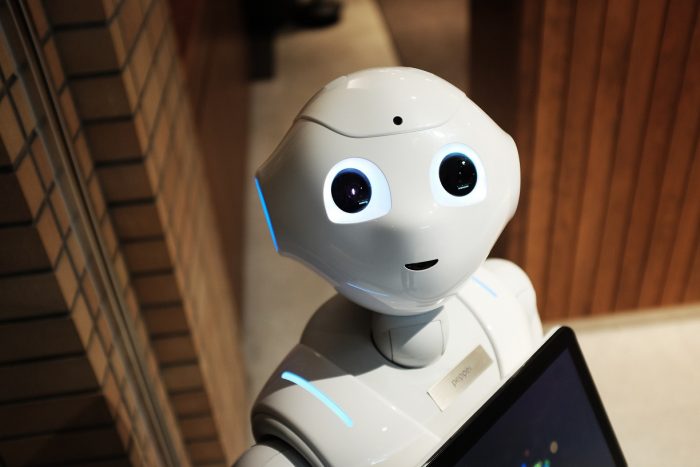

Artificial Intelligence have come a long way to find its place in our daily lives. Even though it is currently in a nascent stage, but a large number of devices and operational activities around us is run by it. Starting from our favorite voice assistant in our smartphones and generating business intelligence from customer data to driving automated drones in the sky, artificial intelligence plays a crucial role in improving operational efficiency. Along with various domains, artificial intelligence is being tested for its effectiveness in the field of organizational management. It may sound like a science fiction but soon AI will be able to give us medical advice or even help us with our college essays.
The implementation of AI in organizations may sound alarming as it can replace several human resources who are involved in job roles that can be easily automated. Regardless, AI is likely to find a permanent place in organizations to increase the efficiency of administrative operations. Studies have shown that a major portion of a manager’s time and effort is spent in coordinating and controlling administrative tasks, and a small portion of it is left for strategic innovation and stakeholder engagement. This indicates that the managers are not being able to focus on organizational development as they are preoccupied with administrative roles. So, if these administrative workloads can be reduced by automating them by the use of AI, then the managers will be able to put more focus on organizational development. They will be able to focus more on transformational changes rather than on transactional activities.
Decision making plays a vital role in organizational success. The decisions made by the mangers, as a part of the daily job role, involves following organizational regulations as well as maintaining and empathetic and ethical approach. Thus, the presence of human element in the decision making process facilitates in taking situation oriented decisions by applying creative thinking. The advancement in AI, through machine learning allows the system to take decisions by assessing individual situations, rather than applying generalist rules in all cases. Thus, organizational authorities can allocate certain decision oriented roles to AI that can help to reduce human error and increase operational efficiency. It can be expected that the incorporation of AI in organizations will also bring changes in leadership roles. Organizational leaders will be more involved in guiding the employees towards long term growth, instead of staying engaged with daily operations.
In the near future, AI will become an integral part of many major companies that will practically change the organizational structure of the firms. It will eventually replace several jobs, but it does not necessarily mean that a large number of employees will be thrown into unemployment. It is up to the authorities, how they will restructure their organization, so that both AI and human workforce can coexist. The existing human capital of a company can be redirected to more specialized job roles, whereas the easy to automate, generalized tasks can be handed over to the AI. Thus, we can hope that AI should bring positive changes in global business environment, and the organizational leaders are able to give equal importance to balance between man and machine.
Browse Front PageShare Your IdeaComments
Read Elephant’s Best Articles of the Week here.
Readers voted with your hearts, comments, views, and shares:
Click here to see which Writers & Issues Won.



